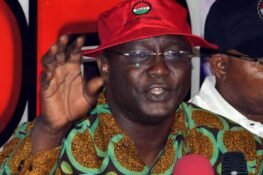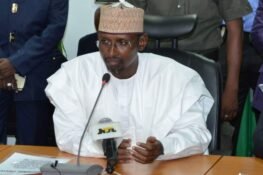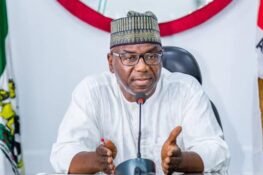The Federal Government says it will resume its negotiations with the striking Academic Staff Union of Universities (ASUU) next week, with a view to ending the prolonged closure of Nigerian public universities.
The Minister of Labour and Employment, Senator Chris Ngige, said this in his opening remark at a meeting between the government side and the striking National Association of Academic Technologists (NAAT).
Ngige noted that the multiple industrial disputes in the education sector could have been averted if the unions in the sector took advantage of his open door policy like the health unions.
He said that the open door culminated in the peace currently enjoyed in the health sector.
The minister, however, decried the rivalry between the two education unions. He made it clear that everybody was important in the university system.
He gave assurance that the government was tackling all the disputes in education sector holistically, knowing fully well that none of the unions could function effectively without the other.
“If you are from any union, you don’t need to book appointment to see me. The doctors started using that advantage, JOHESU also did the same.
“That is why the Health Sector is quiet. But the education unions don’t take advantage of my open door policy.
“We don’t have to cry over spilt milk. Let us look at your issues to see the ones we can handle immediately, the ones we can do in the medium term and the ones we can do in the long term.
“There are certain ones that are over and above me that are not in my hands to do.
“My job is to prepare an agreement after conciliation on what you have agreed with your employers, the Federal Ministry of Education, put timelines and monitor them, to see whether the results will be there,” he said.
He added that, as a conciliator, he managed the unions in measured steps.
“That is why I want to take all of you holistically and I ask for your cooperation. When I finish with you today, I will continue with ASUU next week.
“I have met NASU and SSANU yesterday (Thursday) and they were happy. I want you people to be happy as we leave here,” he said.
Ngige also said that what was causing the rumpus in the industrial milieu were economic, bordering on money and welfare, including old arrears and 2009 renegotiation of Conditions of Service.
“I believe that if we talk frankly to ourselves, knowing fully well that the economy is not good and that you should have money that can take you home.
“With an open mind, we will arrive at something. Once we arrive at something, it will be done,” he said.
He, however, noted that the renegotiation of the 2009 agreement would not be immediate because the Education Ministry had put in place a committee to handle it.
Also speaking, the Permanent Secretary, Federal Ministry of Education, Andrew Adejo re-emphasised that all the issues in dispute were basically economic, in the sense that everybody wants improved conditions of service.
Adejo said, while government agreed that workers should enjoy better Conditions of Service, consistent industrial actions were worsening the situation.
“In 2000 when this agreement was signed, N400,000 was equivalent to 3000 dollars. Today, that N400,000 is less than 400 dollars. Because of this consistent trend, we are reducing productivity in the economy,” he said.
Ngige added that, the things that would help us to generate more money to meet these demands had been taken away.
He, therefore, called for the speedy resolution of the disputes to enable the children to return to school.
Also, NAAT President, Ibeji Nwokoma, said ordinarily, they would not have gone on strike, but they were compelled to do so because the Education Ministry didn’t help matters in the issue.
He said they embarked on strike as a last resort to draw government attention to their plight.
(NAN)








